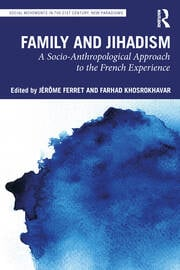research activities
New fraternal scenes and jihadist violence, Ripoll (Catalonia, northern Spain). Jérôme Ferret
Research - Theme
New fraternal scenes and jihadist violence, Ripoll (Catalonia, northern Spain). Jérôme Ferret
on the December 29, 2021
In "Family and Jihadism. A Socio-Anthropological Approach to the French Experience". By Jérôme Ferret, Farhad Khosrokhavar. Chapter 5|27 pages
Abstract
In this chapter we present the findings of an empirical survey 1 carried out between October 2017 and November 2019 in Ripoll, a small town of approximately 10,000 inhabitants located in the north of Catalonia (Spain), at the foot of the Pyrénées in the province of Gerona, close to the frontier with France. The authors of the attacks which took place in Barcelona and Cambrils in August 2017 2 came from this small town. This monograph is intended to be exploratory. We present and organise a set of original, unpublished data. This data was gathered locally from different sources in keeping with a precise methodology. In a more theoretical perspective, this long field work has enabled us to test, invalidate or to expand a new anthropological model of the jihadi family. It has enabled us to obtain results and more specifically, to inform the four types of general variables which are articulated in our model.
In this chapter we present the findings of an empirical survey 1 carried out between October 2017 and November 2019 in Ripoll, a small town of approximately 10,000 inhabitants located in the north of Catalonia (Spain), at the foot of the Pyrénées in the province of Gerona, close to the frontier with France. The authors of the attacks which took place in Barcelona and Cambrils in August 2017 2 came from this small town. This monograph is intended to be exploratory. We present and organise a set of original, unpublished data. This data was gathered locally from different sources in keeping with a precise methodology. In a more theoretical perspective, this long field work has enabled us to test, invalidate or to expand a new anthropological model of the jihadi family. It has enabled us to obtain results and more specifically, to inform the four types of general variables which are articulated in our model.


